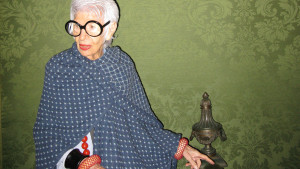
Put two men on a ranch, let them wordlessly flirt, and it’s not hard to think of the seminal Brokeback Mountain. Francis Lee’s stunning feature debut God’s Own Country invites such comparisons, and many critics have eagerly explored them. But God’s Own Country debuts twelve years later, and while cookie-cutter romcoms are seldom compared because of their output frequency, films grazing “queer naturalism” are much more susceptible to clumping—even as Country undermines each of its ancestors.
Like Brokeback’s Ennis (Heath Ledger) and Jack (Jake Gyllenhaal), Country’s taciturn male leads are white, rugged, and poor. Both films also feature aching desires and agrarian settings sumptuous in their vastness. The undeniable difference between the two is their endings—Country’s unexpected conclusion not only decouples it from further Brokeback comparisons but also, in ways optimistic and fraught, heralds a new era of LGBTQ cinema that asks, “Do queer films need tragic endings to succeed?”
Those that do not end in lachrymose separations (Call Me By Your Name, Blue is the Warmest Color), AIDS-related deaths (BPM, Philadelphia), or hate crimes (Milk, Tangerine) are scarce. Those with happy endings are, well, rainbow unicorns. Even last year’s Moonlight, beautiful in its own right, left the door of Chiron and Kevin’s relationship open, but now God’s Own Country literally closes that door in its final shot as the gay lead characters step into a home together. It’s sentimental, but earned. By and large, marginalized groups are depicted onscreen as persecuted underdogs. This makes for compelling (and award-winning) stories, but what if the LGBTQ community saw itself as not heartbroken or dying but loved and achieving?
Country is set in the present; Brokeback spans the 1960s and 70s. The decades bridging these films’ backdrops were rich in evolving social norms and LGBT firsts—the “coming out story” God’s Own Country is not. This is not to say its characters are always comfortable in their skin. Johnny (Josh O’Connor), a young farmer in the bleak Yorkshire countryside, hides himself in his big coats and small bedroom. Though his father and grandmother do not know he is gay, Johnny’s dilemmas largely concern—as with most 20-somethings—where his life is headed.
By day, Johnny unenthusiastically checks if cows are pregnant, milks them, and scoops up their shit. Brutal evening winds carry him down to the local pub where old mates on uni vacation convene and ask how he’s doing. One even suggests a male lover for Johnny—unlike in Brokeback, his queerness is no colossal secret. It is intimacy that Johnny struggles with. Enter Gheorghe (Alec Secareanu), the strapping Romanian migrant worker hired to help Johnny with lambing season. It’s not long before frigid nights lead to steamy encounters. The pastoral rhythms of Brokeback may seem echoed in Country; indeed they are, but Lee also uplifts them. In Brokeback, Ennis and Jack herd sheep, steering them from danger. In Country, Johnny and Gheorghe help them give birth.
Johnny accepts gifts from Gheorghe—a kiss (a first for the stoic farmer), a spice packet to add to his flavorless Pot Noodle (another first), and a homemade dinner that does not ask for praise. Johnny gradually opens up and welcomes affection, planting the seeds for a life too unconventional for Brokeback’s men to lead. Perhaps most significant, the men in Country do not need to return to their Edenic ranch to rekindle: their relationship, more so than Ennis and Jack’s, transcends space and time. Previous queer films have not trained us for such relationships, even as theirs hits some bumps when Johnny reverts to old habits.
But Johnny and Gheorghe are blessed with the freedom to pursue their fledgling romance. When Gheorghe’s migrant work takes him to another farm, we might expect the film to end there. So it almost feels trite to see Johnny run after him, tongue-tied and jittery. It’s been done before, but rarely with men. And there lies the beauty—these men are not wealthy, do not live in cities, and are often outside of filmmakers’ periphery. We want them to succeed even if we don’t know how to react when they do. God’s Own Country—standing on the movies, marches, and movements that precede it—is teaching us how.
—
Directed by Francis Lee; written by Francis Lee; starring Josh O’Connor, Alec Secareanu, Ian Hurt, and Gemma Jones; 104 minutes.



 Derek
Derek
 Isabelle
Isabelle